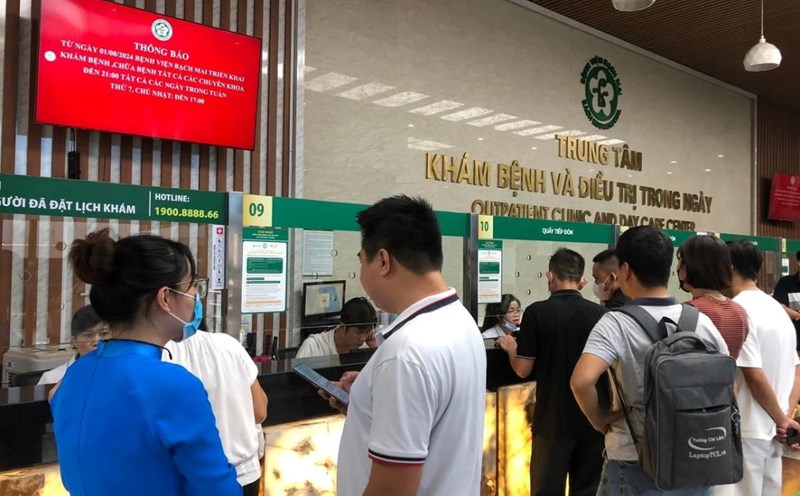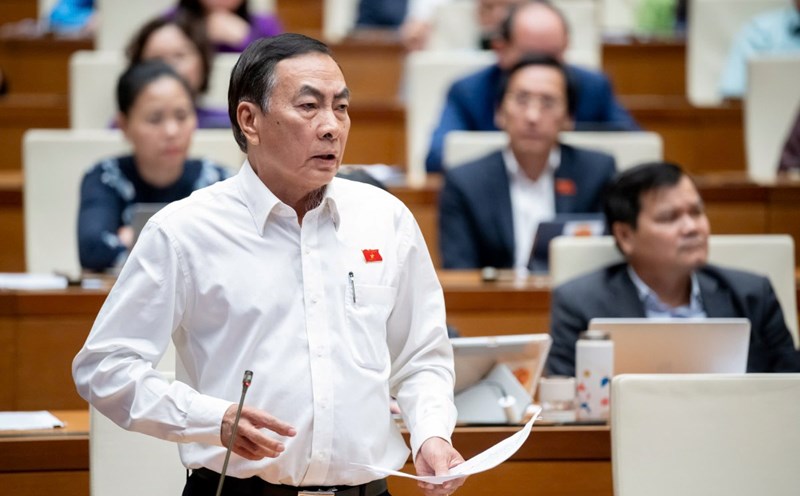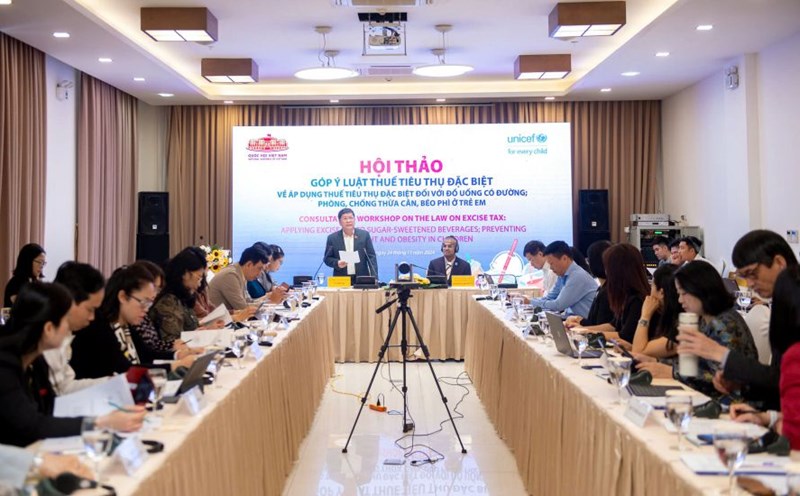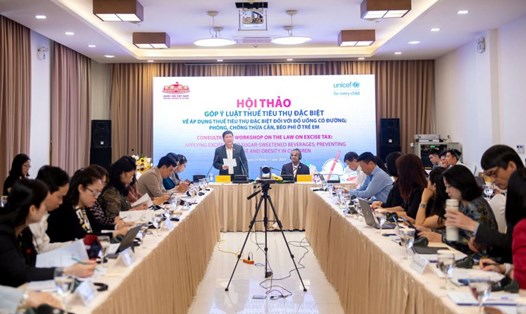On the afternoon of November 27, the National Assembly discussed in the hall the draft Law on Special Consumption Tax (amended).
Contributing his opinion to the draft law, delegate Pham Van Hoa (Dong Thap delegation) suggested considering increasing the special consumption tax on sugary soft drinks according to a roadmap. This should be studied in the context of businesses facing many difficulties, affecting production and business...
According to delegate Pham Van Hoa, many other goods also have high sugar content, not just sugary soft drinks.
If high taxes are imposed, there may be the appearance of soft drinks, beer and wine that are handmade and smuggled into Vietnam, which are very difficult to control.
"If we impose special consumption tax on soft drinks and sugary drinks, it will kill our country's sugar cane industry. Everyone's body needs sugar and must use it. It is unreasonable to ban sugary soft drinks but not candy," said delegate Pham Van Hoa.
According to the delegate, don't say that sugary drinks are sinful, that's not true. Sugar is not at fault, only the chemicals mixed in that sugar are at fault, increasing childhood obesity.
From there, delegates said that if food safety inspections for sugary soft drinks are not guaranteed, they should be handled and punished to ensure safety.
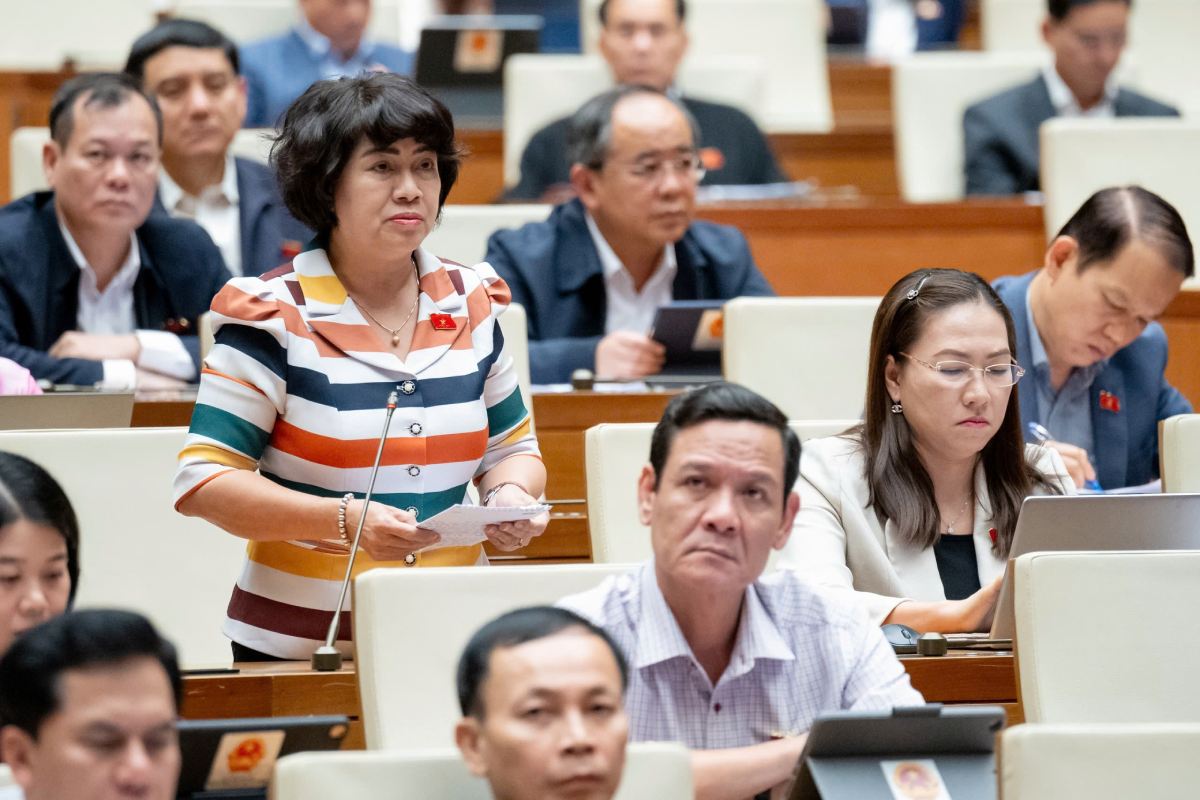
Delegate Nguyen Thi Le Thuy (Ben Tre Delegation) said that the rate of soft drink consumption does not always increase. In the period 2013-2020, the rate of soft drink consumption only increased by an average of 3.2 liters/person/year, from 47.65 liters/person in 2013 to 70.56 liters/person in 2020, equivalent to 0.3 liters/month.
But in just one year, in 2021, the consumption rate of sugary soft drinks decreased to 55 liters/person/year, which is a decrease of 15.56 liters/person/year, even though there was no special consumption tax measure.
According to delegates, imposing a special consumption tax on sugary soft drinks may not make consumers give up consumption. If imposed, it will only make them switch from taxable products to street drinks that are not affected by the tax and pose many potential risks to food hygiene and safety.
Delegates cited a 2018 survey that found that if a 10% excise tax were imposed on bottled soft drinks, 49% of consumers would switch to locally produced soft drinks sold on the street.
This makes it difficult for any regulatory agency to determine the amount of sugar in beverages. This not only causes tax losses but also goes against the goal of lawmaking, which is to expand the tax base and improve public health.
The delegate also stated that scientific studies by nutrition agencies as well as the World Health Organization (WHO) and the Ministry of Health have shown that sugary soft drinks are not the main and only cause of overweight and obesity.
There are many causes of overweight and obesity such as nutritional imbalance, consuming high-calorie foods, genetic diseases, and lack of physical activity. Fast food and processed foods are also the causes of overweight and obesity.
In practice, not all countries that impose excise taxes on sugary soft drinks achieve their goal of reducing overweight and obesity rates, such as Brunei, Mexico, the Philippines, India, Chile, Finland, and Belgium.
These are countries that have applied excise taxes on sugary drinks for many years, but the rate of overweight and obesity is still increasing steadily.
Meanwhile, countries that do not apply excise taxes on sugary drinks, such as Japan or Singapore, have the lowest rates of overweight and obesity.

